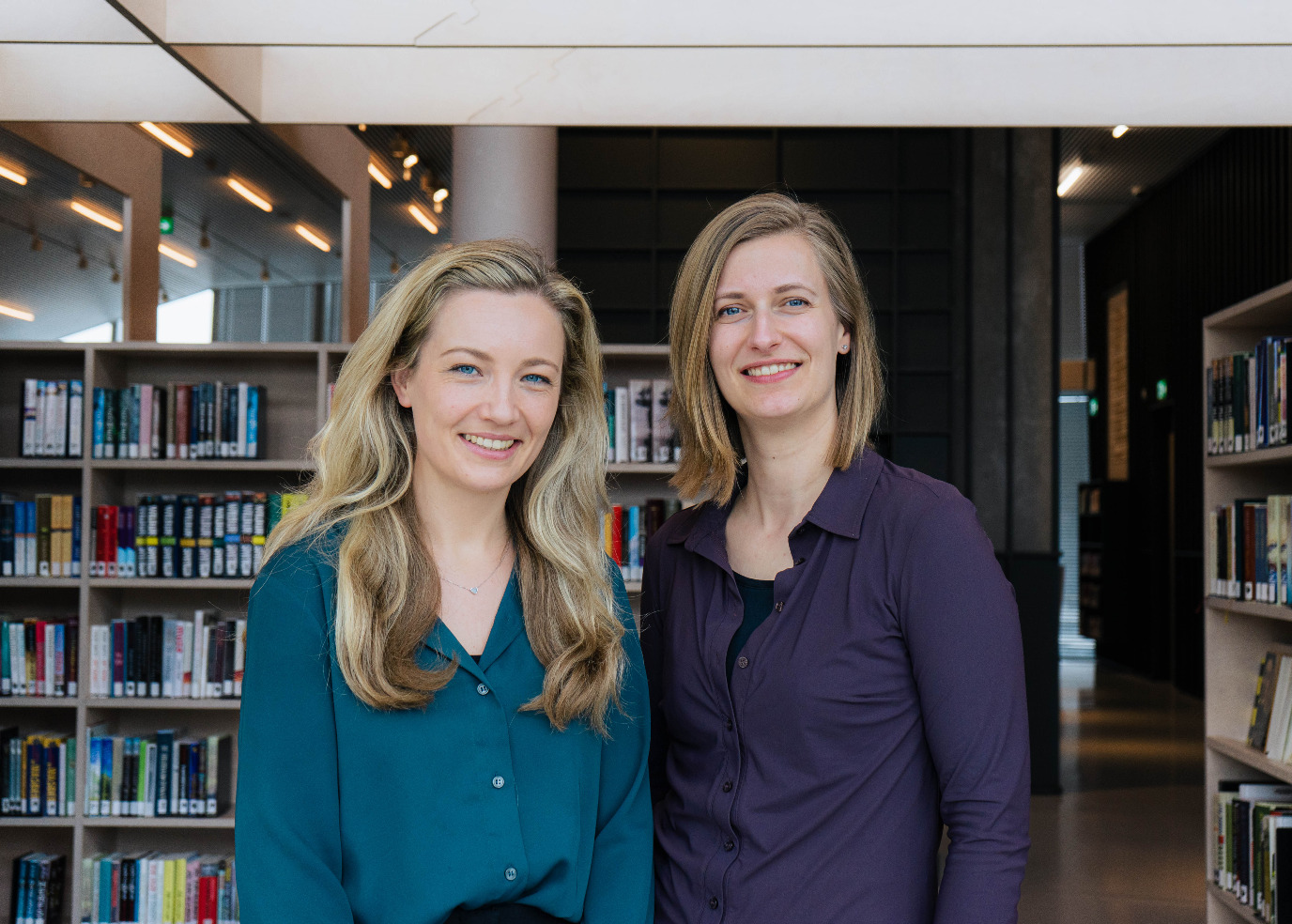New team at the Science Shop for Education

Since September, the Science Shop for Education has a new team. Marij Veldman and Mariëtte Hingstman, both assistant professors at the Department of Educational Sciences, have taken over from Denise Leidelmeijer. Together, they aim to make science more accessible. In this interview, Veldman and Hingstman discuss their mission, the connection with practice, and their plans for the future.
What do science shops actually do?
Marij: "The goal of science shops is to bridge the gap between science and society. Science shops conduct research that is genuinely useful to practice."
Mariëtte: "At the Science Shop for Education, we collect pedagogical and education-related questions from people and organizations in practice, such as schools, childcare organizations, and municipalities. We then match these questions with students who conduct research to answer them."
Marij: "In addition to receiving questions, we also monitor what is happening in practice and translate that into concrete research projects."
Is there a lot of use of your services?
Mariëtte: "Officially, we started in September, but behind the scenes, we have been working with the science shop since March. There are already four projects running this academic year, but we are always open to more questions."
Marij: "These can be small or large questions. Sometimes we can also help a questioner by sharing previous research, so no new research project needs to be started."
Can you give an example of a project you are working on?
Marij: "A notable project is the research into the dropout prevention program at the Oude Manege. In a 12-week program, school leavers and their parents are offered activities aimed at providing the youth with a renewed sense of future perspective. This includes activities related to psycho-education, systemic work, and career planning. The experiences with the program seem positive, but the initiators want to further investigate its impact. Students will be working on this."
Who can turn to you?
Mariëtte: "Anyone from the field with a pedagogical or educational issue. Whether it's a big or small question, we always say: just email us!"
Marij: "Additionally, researchers from the Faculty of Behavioural and Social Sciences can also come to us if they want their students to participate in a pedagogical or educational research project. This could be in the form of a bachelor’s or master’s thesis, an internship, or an assignment within a course."
Why did you decide to join the Science Shop for Education?
Mariëtte: "It’s incredibly rewarding to conduct research that is directly connected to practice. The questions we receive come from people who genuinely want an answer. Additionally, I find it inspiring for my own research."
Marij: "I feel the same way. It’s relevant research and it helps make the university more accessible. We hope to demonstrate that the university is not an ivory tower.”
What do you hope to achieve in the near future?
Marij: "We hope that more people will find us, especially from the field. We notice that not everyone is aware of our existence yet."
Mariëtte: "We are actively networking, having coffee with people both within and outside the university, and participating in events like Zpannend Zernike. This way, we aim to reach more people. We are looking forward to the interesting questions that will come to our science shop!"
More information
More news
-
03 February 2026
‘Such willpower’
-
20 January 2026
Alcohol, texting, and e-bikes
-
13 January 2026
Lonneke Lenferink joins The Young Academy


